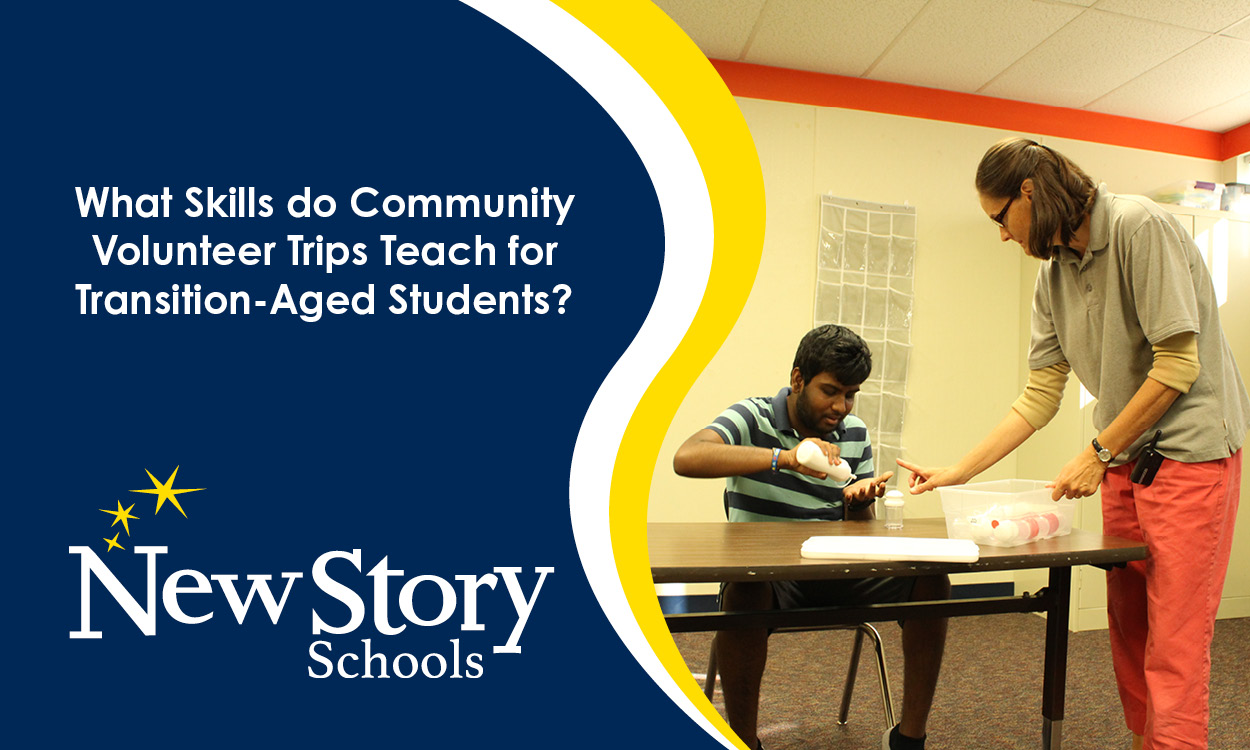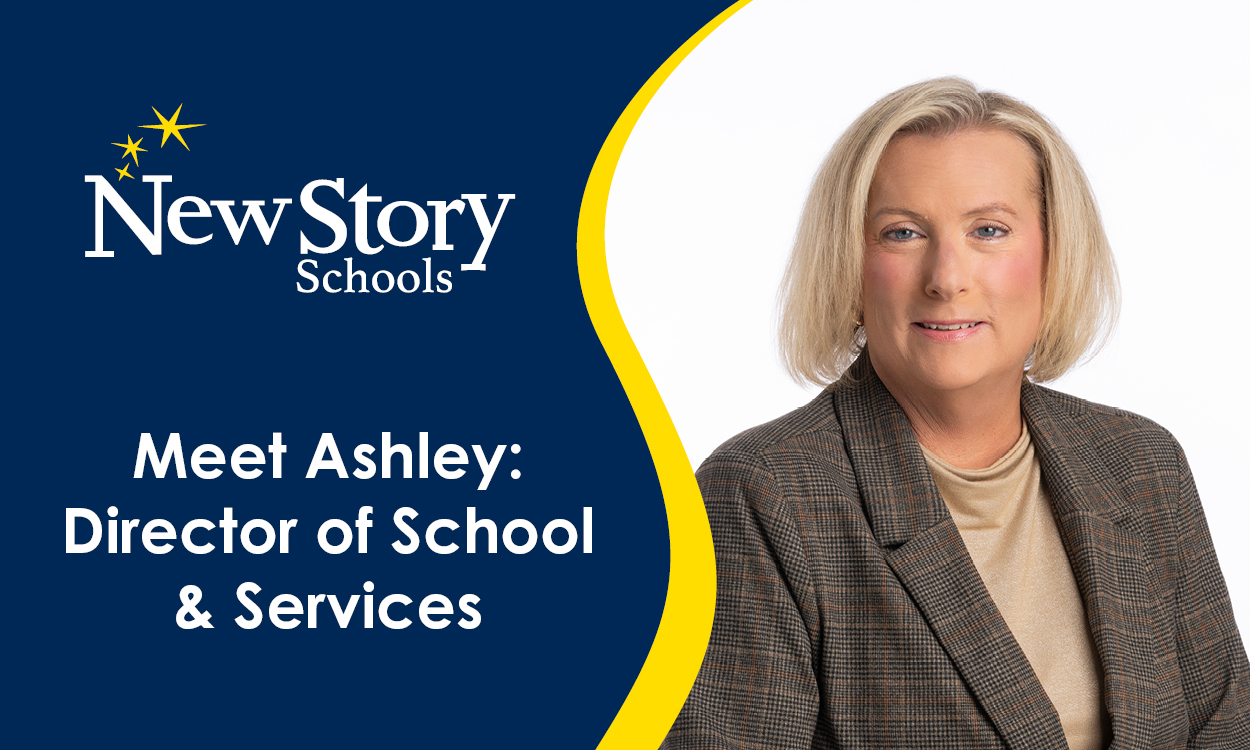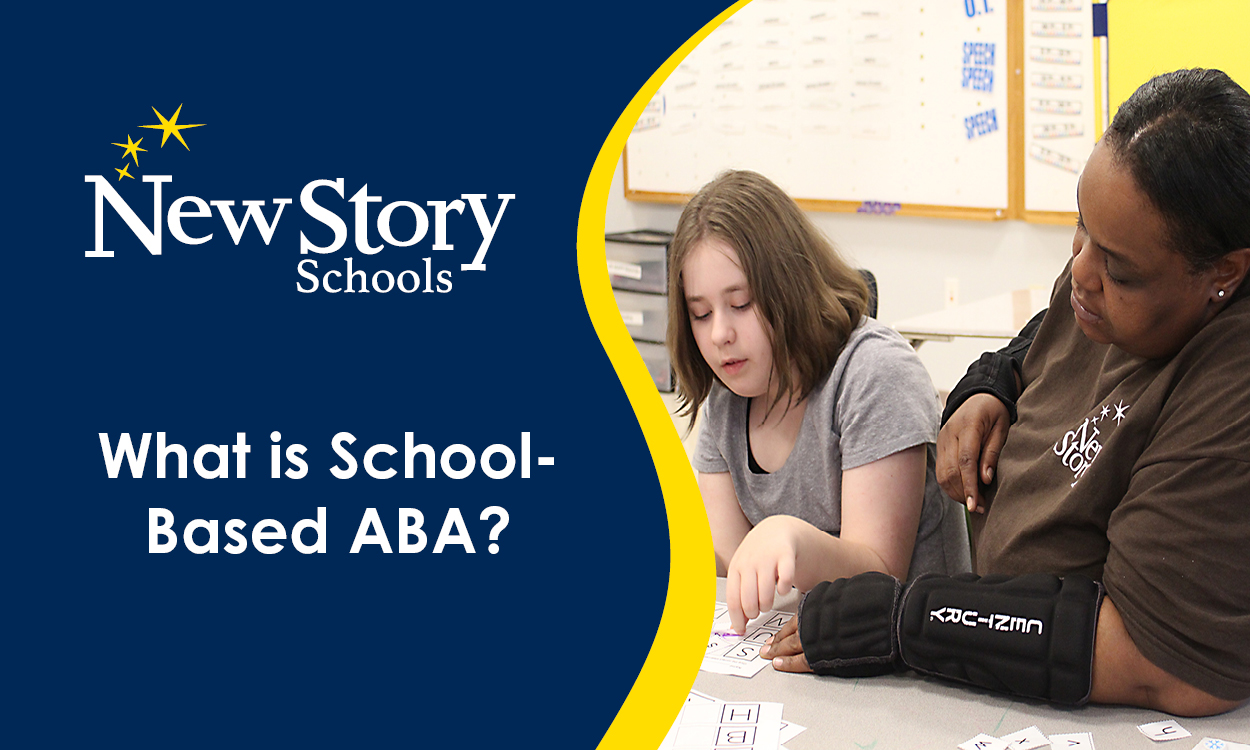What Skills do Volunteer Trips Teach for Transition-Aged Students?
Posted: April 12, 2021 | Written By: Justin Maseto | Category: Autism Support

By Justin Maseto, Transition Coordinator
New Story Schools DuBois
Transition coordinators create opportunities every day for transition-aged students to gain real-world experience that will help them meet their post-secondary goals. For students who are getting ready to secure employment after graduating, volunteer trips are a critical tool to help students feel comfortable in a variety of situations and doing a variety of tasks in an employment setting.
So what do trips like this teach?
Teachers and staff utilize trips like these to teach:
- Basic Job Skill Readiness 1-2 Step Following Directions Hygiene Resume Building
Skills like these are individualized for each child, based on their abilities, strengths and interests. You might ask your IEP team about how your child is doing with these skills, and what services you can build into the IEP goals to help them master any of the skills they are not strong with, yet.
But there is more to a community visit than just what is on paper. These visits are critical for building more nebulous skills that your child will need just as much.
- Self-Advocacy
As independent adults, our students should know what they need to do to be successful, and then to communicate those needs. Every day, adults communicate their needs to their supervisor — whether that’s time off to go to the doctor, or to make sure they eat lunch, or asking for a refresher training session for a skill they don’t feel confident about. These trips help the student define their needs in real world situations and practice communicating those needs to people in their team or managers at the job site.
Self-advocacy is critical to helping each student feel independent and confident in their success.
- Self-Worth and Confidence
Kids will often say, “I can’t do that,” when approaching a new skill. But on volunteer trips, and after time doing the new skill, they find that they actually can do it. Remembering their previous successes with new skills can help them feel more confident with the next new skill to tackle. Increased skills equal increased confidence.
In any kind of employment situation, the ability to communicate what you can do for the team is vital. Students should be proud of their skillsets and their place in any team.
- Teamwork
Teamwork can sometimes feel like a lost art, especially for students used to only worrying about their own work and their own grades. But it is essential for success in most jobs.
By being part of an environment that is conducive to teamwork, and by practicing the skills needed, students learn to appreciate the work of other team members, to help others who are struggling and to accept help from others.
For instance, in a clothing store, a group of students may be working in the back to unbox and fold clothing items to thenbe brought out to the floor for sale. One student unboxes, another folds pants, still another student hangs or folds shirts. If one of them goes slower, the whole team is held up, and the team has a choice: to be patient and wait, or to help the team member who struggles. Rotating jobs gives everyone a chance to appreciate the challenges of each task, learn new skills, and celebrate their teammate’s successes. The team is not done until the whole job is done, and any rewards or reinforcements go to the team as a whole.
There are many types of transition trips—trips to the grocery store, to the laundromat, to local restaurants or local job sites. Each trip presents your student with an opportunity to learn new skills, participate in their community and find new interests. Speak with your IEP team as early as you can to get your student started on the path toward their future.
Want to be notified of new articles and resources from New Story Schools? Submit your email and opt into our newsletter!









